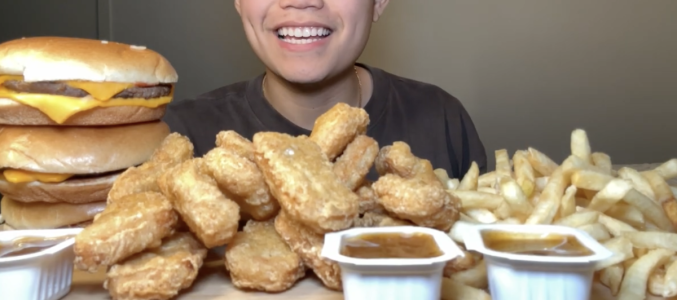Whoopi Goldberg blasts deceptive AI ad—how to spot this unnoticeable scam
- Replies 1
In an age where technology can be both a blessing and a curse, the latest cautionary tale comes from none other than Whoopi Goldberg.
The beloved actress and co-host of The View has recently taken to the airwaves to sound the alarm on a deceptive advertisement that's been circulating online, one that atrociously uses her AI-generated likeness to peddle products she has never endorsed.
During a recent episode of The View, Goldberg expressed her concern and frustration over the misuse of her image, urging viewers to remain vigilant against such scams.
“I’m giving everybody a heads up. There’s a phony weight loss ad floating around online on Instagram that has me, AI mouthed, saying all kinds of stuff,” she cautioned her audience.
The ad in question reportedly manipulated footage from Goldberg's appearance on CBS Sunday Morning, creating a false narrative that she was promoting questionable weight loss drugs.
Goldberg was adamant in her response: “Do not, do not indulge in this. Do not look at this. Just get rid of it. Because I don’t know what it is, I had nothing to do with it, and I don’t want y’all thinking this is coming from me.”

Goldberg's own journey with weight loss has been public, as she has openly shared her experiences with the drug Mounjaro, which she credits for her weight loss after filming the 2022 historical drama Till.
“I will tell you I weighed almost 300 pounds when I made Till,” she revealed on a March episode of The View. “And I had taken all those steroids, I was on all this stuff and one of the things that helped me drop the weight was Mounjaro. That’s what I use.”
The misuse of Goldberg's image highlights a growing concern over AI-created content and its potential for harm. “But this stuff? I don’t know who these people are. That’s the problem with AI. You don’t know who made it. But I’m telling you it’s a lot of BS, do not fall for it,” Goldberg warned.
“I don’t sell anything unless I say, ‘Hey, It’s me, Whoopi,’ that’s how you know it’s me,” she expressed.
So, how can you, as a savvy member of The GrayVine community, protect yourself from falling victim to such scams? Here are some tips to keep in mind:
1. Verify the source: Always check the authenticity of the advertisement. If it's not coming directly from a verified account of the celebrity or the product's official page, be wary.
2. Look for official endorsements: Celebrities like Whoopi Goldberg will clearly state their partnerships.
3. Research the product: Before considering any weight loss product, do your due diligence. Look up reviews, FDA approvals, and consult with a healthcare professional.
4. Be critical of AI content: AI technology can create realistic-looking content, but it often lacks the nuances of human expression. If something feels off, trust your instincts.
5. Report scams: If you encounter a deceptive ad, report it to the platform it's on. This helps prevent others from being misled.
Source: The View / Youtube.
Also read: The secret spice that could help you shed pounds—is it in your kitchen?

Have you encountered similar scams? How do you ensure the content you're viewing is legitimate? Share your experiences and tips in the comments below!
The beloved actress and co-host of The View has recently taken to the airwaves to sound the alarm on a deceptive advertisement that's been circulating online, one that atrociously uses her AI-generated likeness to peddle products she has never endorsed.
During a recent episode of The View, Goldberg expressed her concern and frustration over the misuse of her image, urging viewers to remain vigilant against such scams.
“I’m giving everybody a heads up. There’s a phony weight loss ad floating around online on Instagram that has me, AI mouthed, saying all kinds of stuff,” she cautioned her audience.
The ad in question reportedly manipulated footage from Goldberg's appearance on CBS Sunday Morning, creating a false narrative that she was promoting questionable weight loss drugs.
Goldberg was adamant in her response: “Do not, do not indulge in this. Do not look at this. Just get rid of it. Because I don’t know what it is, I had nothing to do with it, and I don’t want y’all thinking this is coming from me.”

Whoopi Goldberg has issued a warning about a false weight loss ad using an AI-generated version of her likeness on social media. Image source: The View / Youtube.
Goldberg's own journey with weight loss has been public, as she has openly shared her experiences with the drug Mounjaro, which she credits for her weight loss after filming the 2022 historical drama Till.
“I will tell you I weighed almost 300 pounds when I made Till,” she revealed on a March episode of The View. “And I had taken all those steroids, I was on all this stuff and one of the things that helped me drop the weight was Mounjaro. That’s what I use.”
The misuse of Goldberg's image highlights a growing concern over AI-created content and its potential for harm. “But this stuff? I don’t know who these people are. That’s the problem with AI. You don’t know who made it. But I’m telling you it’s a lot of BS, do not fall for it,” Goldberg warned.
“I don’t sell anything unless I say, ‘Hey, It’s me, Whoopi,’ that’s how you know it’s me,” she expressed.
So, how can you, as a savvy member of The GrayVine community, protect yourself from falling victim to such scams? Here are some tips to keep in mind:
1. Verify the source: Always check the authenticity of the advertisement. If it's not coming directly from a verified account of the celebrity or the product's official page, be wary.
2. Look for official endorsements: Celebrities like Whoopi Goldberg will clearly state their partnerships.
3. Research the product: Before considering any weight loss product, do your due diligence. Look up reviews, FDA approvals, and consult with a healthcare professional.
4. Be critical of AI content: AI technology can create realistic-looking content, but it often lacks the nuances of human expression. If something feels off, trust your instincts.
5. Report scams: If you encounter a deceptive ad, report it to the platform it's on. This helps prevent others from being misled.
Source: The View / Youtube.
Also read: The secret spice that could help you shed pounds—is it in your kitchen?
Key Takeaways
- Whoopi Goldberg has issued a warning about a false weight loss ad using an AI-generated version of her likeness on social media.
- Goldberg clarified that her own weight loss is attributed to the use of the drug Mounjaro, which she discussed openly on The View.
- The ad falsely represented her as promoting a weight loss drug, which she strongly
disavows, noting that she had nothing to do with the ad. - Goldberg also cautioned about the potential dangers of AI technology in creating deceptive content, emphasising the importance of verifying the authenticity of celebrity endorsements.
Have you encountered similar scams? How do you ensure the content you're viewing is legitimate? Share your experiences and tips in the comments below!






